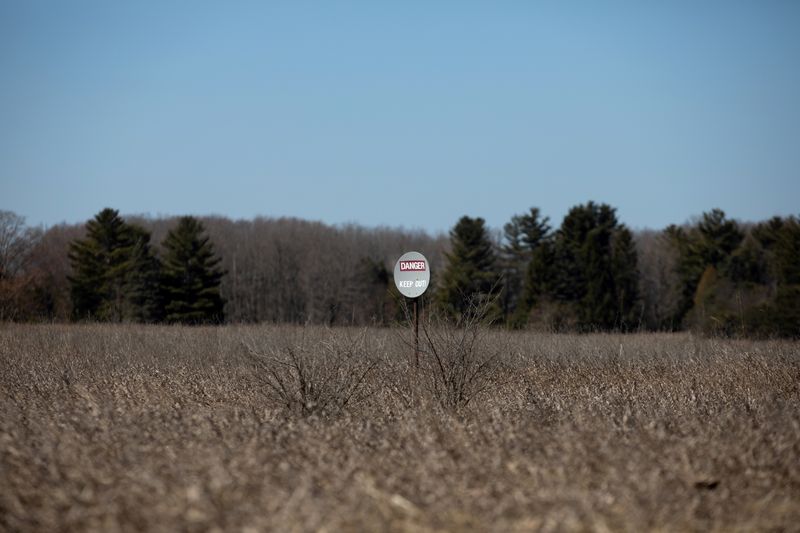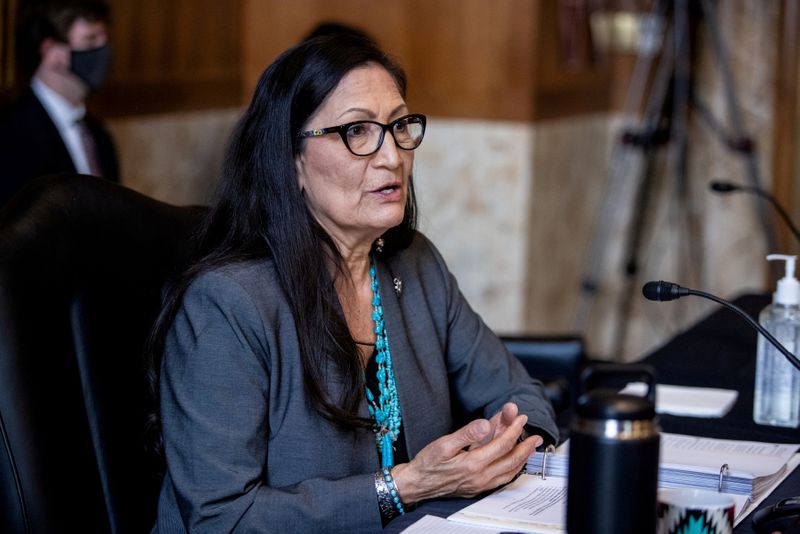(Reuters) -U.S. oil industry and labor representatives were on the hot seat on Thursday as the administration of President Joe Biden launched a formal review of the federal drilling program to weigh its value to taxpayers against its environmental costs.
Biden froze new drilling lease auctions in January as one of his first moves in the White House to pave the way for the review, triggering a backlash from the oil and gas industry which warned it would cost jobs and hurt the economy.
The pause is widely seen as a first step to fulfilling Biden’s campaign promise of a permanent ban on new oil leasing on federal lands and waters to fight global warming. His administration complains that half the 26 million acres of federal land currently under lease for drilling are not producing, generating little for public coffers, while the rest are contributing to climate change.
“The Trump administration offered vast swaths of our public lands and waters for drilling, prioritizing fossil fuel development above all other uses on public lands and waters,” Interior Secretary Deb Haaland said at a virtual public forum that kicked off the administration’s formal review of the program.
“While some corporations profited, taxpayers were shortchanged, and voices of many Americans went unheard,” she said.
Labor and industry representatives at the public forum urged against adopting any drastic reforms to the program.
“We must ask if an outright ban on federal leases is the best first step without addressing the downstream job impacts that provide employment opportunities,” Sean McGarvey, president of North America’s Building Trades Unions, said.
Frank Macchiarola, senior vice president of policy, economics and regulatory affairs for the American Petroleum Institute, said the industry was willing to adopt technologies to reduce its climate footprint while keeping petroleum flowing.
“We recognize as an industry we can do more to address the risks of climate change,” he told a panel of Interior officials.
The United States has not reformed federal drilling royalty rates or minimum bids for decades, which critics say has depressed taxpayer returns and made it easy for speculators to amass large amounts of acreage on the cheap.
TOP HOLDERS OF IDLE LAND
According to a Reuters review of Bureau of Land Management leasing data, the top five holders of nonproducing oil and gas leases control about 1.5 million acres of federal land, an area slightly smaller than the state of Delaware.
The biggest among them is Kirkwood Oil & Gas, a 50-year-old Rocky Mountain exploration company that holds nearly half a million nonproducing acres, according to the data.
That is part of the business model, according to Steve Degenfelder, the company’s land manager. He said Kirkwood’s business revolves around exploring for oil prospects and then only selling them to drillers once there are enough contiguous leases over the same deposit to package together – something that can take years.
“The leasing starts way, way before anybody even thinks of drilling a well.”
The second-biggest holder of idle leases is an enterprise run by business partners Stephen Smith and Larry Moyer, residents of Colorado, who are betting on a future drilling boom in the unlikely state of Nevada. They have 300,000 nonproducing acres, mostly in Nevada.
The third is Anschutz Exploration Co, part of the business empire of Denver-based billionaire Philip Anschutz, which has around 275,000 nonproducing acres.
Joe DeDominic, president of Anschutz Exploration, said it is hard for an exploration company to identify and test petroleum deposits when federal, state and private land auctions in the West tend to sell only small parcels at a time.
Other major holders of nonproducing acreage include Liberty Petroleum, a New York-based firm with 270,000 acres, and Texas entrepreneur Avinash Ahuja, who holds more than 210,000 nonproducing acres. Neither could be reached for comment.
(Reporting by Nichola Groom in Los Angeles and Valerie Volcovici in WashingtonEditing by Leslie Adler and Matthew Lewis)


























